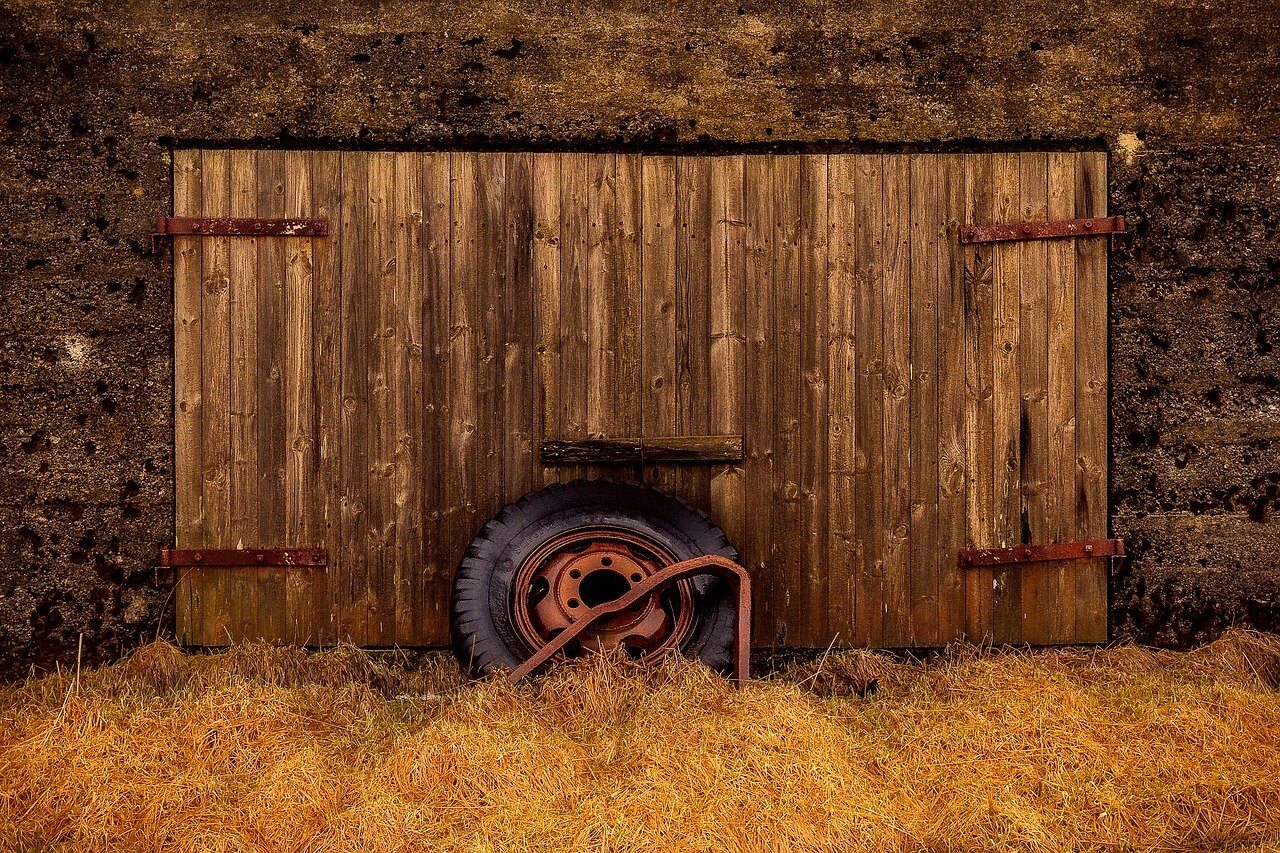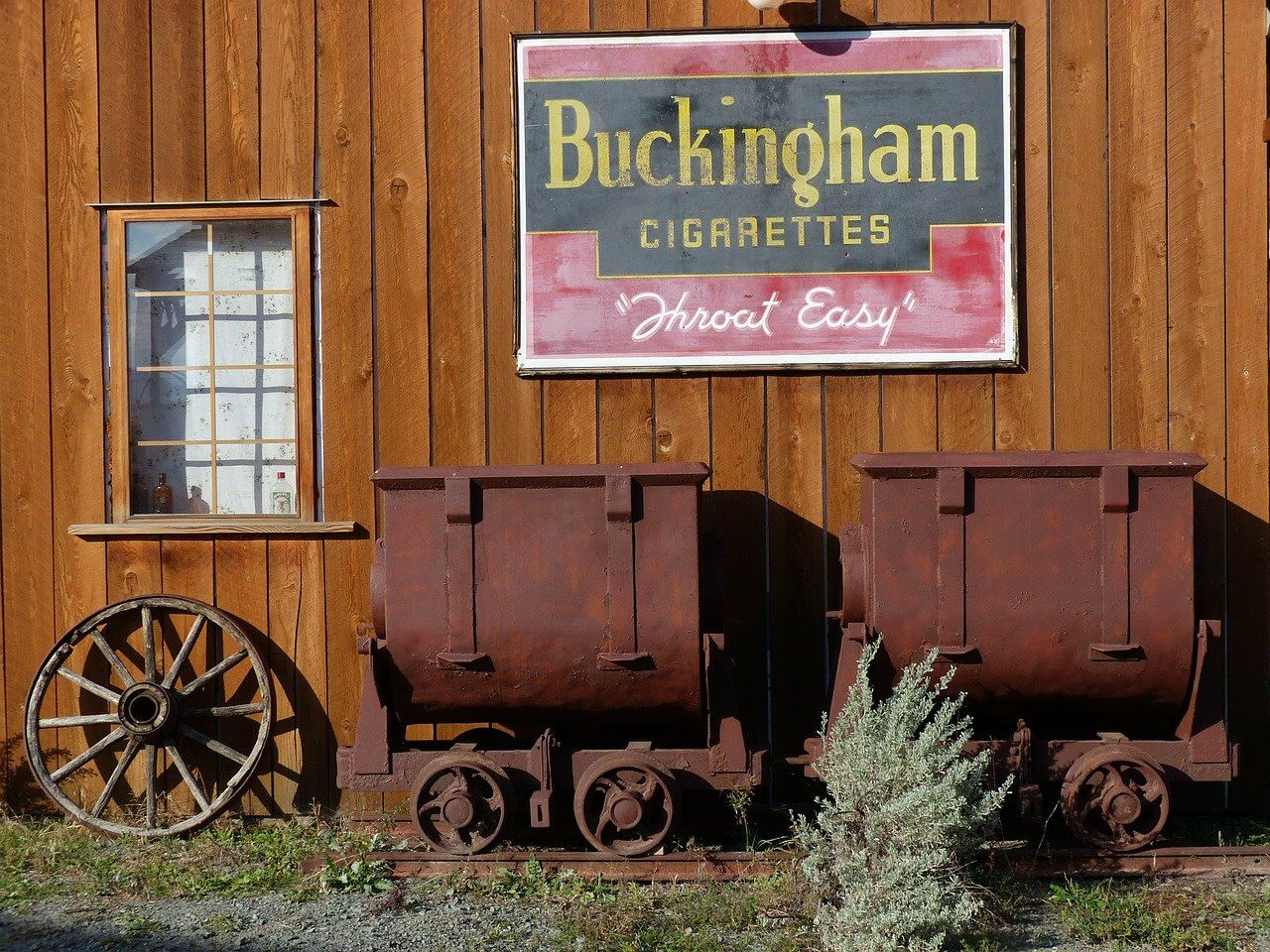Life on a farm is all about making the most of what you’ve got. This is why the old adage, “Use it up, wear it out, make it do, or do without!” Is so often applied to farm life. Farmers have always been master recyclers and have come up with lots of creative, innovative ways to make new use of all things. In this article, we provide an overview of recycling on a farm. Read on to learn more.
What You'll Learn Today
- Recycling Is Good Land Stewardship
- Recycling Water Conserves And Protects A Valuable Resource
- Reduce, Reuse And Recycle Animal Bedding And Manure
- Compost Is Nature’s Way Of Recycling
- Be Sure To Recycle Old Rusted Farm Implements
- Materials Used For Packaging Can Be Very Useful
- Plastic Waste Can Be A Big Problem On A Farm
- Make Good Use Of Old Tires On The Farm
- Salvaged Wooden Pallets Can Save You Effort And Money
- Zero Waste Farming Is A Useful And Creative Pursuit
Recycling Is Good Land Stewardship

Small farmers often live near or on the land that they farm. For this reason, taking good care of the environment is a very personal priority.
The farmer’s livelihood and quality of life depends being a good steward and taking proactive steps to protect the air, land and water. These steps not only benefit the farmer, but also the surrounding communities and wild lands.
Recycling Water Conserves And Protects A Valuable Resource
Water is a finite resource, and it is the basis for all life. For this reason, farmers who grow and raise living things for a living, have many uses for water. Many farmers collect rainwater in barrels and use it to water their gardens and their animals.
The water that is used for cleaning can often be reused. For example, dairy farmers take the water that has been used to keep the milking parlor sparkling clean and reuse it to wash out the animals’ living quarters. Once this task has been completed, the water is recaptured yet again and used for crop irrigation.
Dairy farmers also use quite a bit of water to cool milk. The fresh milk is placed in plate coolers and cold water is run through the plates to cool the milk. This perfectly clean water can then be reused as drinking water for the cows.
These examples of clever reuses of water can reduce water use by 65% or more.
Reduce, Reuse And Recycle Animal Bedding And Manure
Another resource that is used a great deal on farms is animal bedding. One very thrifty, recyclable type of bedding is sand. Cattle especially liked to rest on sand because it is supportive and comfortable. Sand is also recyclable in that it can be cleaned and used over and over again.
Another type of recycled bedding for cattle is manure. The manure solids can be separated out, dried and then used as bedding for cattle.
Compost Is Nature’s Way Of Recycling
Of course manure is also a major component of compost. Manure from cattle, horses, goats, sheep, chickens, rabbits and other herbivores is actually a rather valuable commodity because it contains organic matter and nutrients that can be used to improve the soil and fertilize crops.
Household food scraps can also be added to farm compost, but more often than not they are simply added to pig or chicken feed. All sorts of food scraps can be welcome to these animals.
Surprisingly enough, crushed eggshells make an excellent addition to chicken feed because they help provide calcium to keep the hens’ bones strong and to make the shells of the eggs that they lay strong.
Be Sure To Recycle Old Rusted Farm Implements

Farmers tend to hang on to all sorts of little bits and pieces because they know that there is a use for every little thing. When something breaks, a farmer can often find a spare part or apart to make do by searching through the ever present pile of scrap metal.
In addition to using old metal from farm implements to mend broken implements, many creative farmers use old rusted farm implements to create art. Of course it’s always possible to turn in old metal to the junkyard or recycler to be crushed, melted down and reused.
Materials Used For Packaging Can Be Very Useful
Metal bailing wire and plastic bailing twine are other farm resources that are frequently reused and recycled. Every bail of hay is held together by two lengths of bailing twine or bailing wire. Both of these materials are very valuable for fixing all sorts of things.
Bailing wire is excellent for repairing fences or holding together any metal parts. Bailing twine is even more versatile. This rugged twine can be used as a temporary lead rope, a belt, a shoestring or in any other way a piece of strong, sturdy string could be used. It can also be used as a crafting material.
Feed bags come in several different materials. The old-fashioned burlap bag is hardly ever seen anymore, but if you can get your hands on one you should hang onto it because they are very useful for all sorts of things. Burlap can be washed and reused, so a burlap feed bag is an excellent candidate to be remade into a shopping or tote bag.
These days you’re more likely to see heavy duty, double layered paper feed bags or woven plastic feed bags. The paper bags are excellent when used as trash bags, and they can also be laid down flat to form an under-layer for a raised bed garden.
The woven plastic feed bags are like little tarps. You can cut them up or leave them whole to use anywhere that a small piece of tarp material would be helpful.
Plastic Waste Can Be A Big Problem On A Farm

Plastic is a wonderful material and that it doesn’t degrade it is extremely durable. Unfortunately, those of the very qualities that present problems when it comes to disposal.
Farms generate a great deal of plastic waste, both in farm operation and in simple everyday farmhouse living. Having plastic waste pileup around the farm can be a real hazard and an eyesore, but there are things you can do to counteract the potential damage.
All sorts of plastic containers from jars to coffee canisters to margarine and yogurt tubs or even motor oil containers can be reused on the farm. Coffee canisters are excellent when used as feed scoops.
Plastic jars can be used to hold and organize screws and nails and small parts. All sorts of little plastic tubs make good starting containers for seedlings in the springtime.
Conveyor belts have a very high plastic content, and they are practically indestructible. When they become too worn for use on farm machinery, they can be cut up into floor mats to provide padding and extra traction in hard, slippery areas in the barn.
Plastic garden hose can be used for lots of different things. You can cut it into hand width pieces to make comfortable handle covers for 5 gallon buckets. You can string it between poles in your garden to make a climbing structure for cantaloupe, beans and other climbing plants.
Silage comes wrapped in a great deal of heavy duty, potentially dangerous plastic. If the wrapping from silage or round bales of hay is allowed to flap around loose, it can get entangled in electric fences causing them to short out. This can result in quite a bit of confusion, chaos, mayhem and even loss.
Sadly, there are not many ways to reuse this durable wrapping. You can’t burn it, and you don’t want it to languish in the landfill forever. The best thing you can do with silage bags is to take them in to your recycling center so that they can be properly recycled.
Make Good Use Of Old Tires On The Farm
Sturdy, rugged, indestructible tires will last forever. This is why it’s so important to find something useful for them to do rather than having them litter the landscape and pollute the ocean forevermore. Luckily, there are lots of ways to use old tires around the farm.
Because they are heavy, they can be used to weigh down everything from shed roofs to bunker silos to eroding hillsides. There are also many creative, interesting and fun ways to use tires around the farm and farmhouse.
Salvaged Wooden Pallets Can Save You Effort And Money
Like old tires, wooden pallets also have a multitude of uses around the farm. As is, they can be used to build compost bins and set up temporary fences.
When they wear out or break down, they can be used to start fires. Dismantled and reassembled creatively, they are a cheap source of material for building planters, lawn furniture and much more.
Zero Waste Farming Is A Useful And Creative Pursuit
It’s easy to see that the life of a farmer may very well be built around the concept of reduce, reuse and recycle for a zero-waste outcome.
These are just a few of the many ways that farmers make the most of what they have as they strive to provide wise stewardship for the earth whole producing foods and textiles for society.
I hope everyone would be more aware of environmental issues because we only have one planet to live!